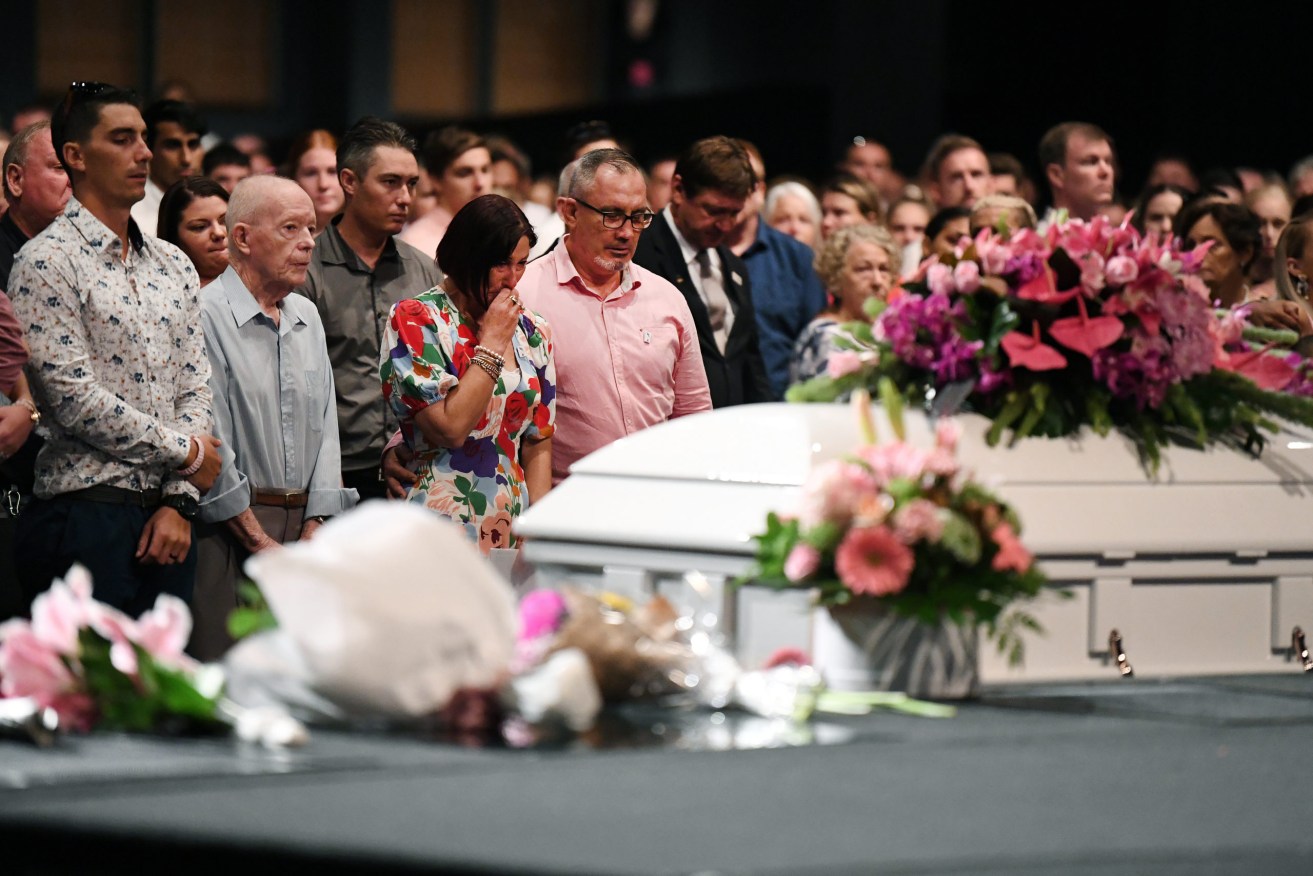Domestic violence report prompts call for government to raise alert
The state’s top advisers want community workers better trained to recognise domestic violence – even when it is seemingly hidden.

Family and friends mourn Hannah Clarke and her children Aaliyah, Laianah and Trey at their funeral in March 2020. Hannah and her children were murdered by their estranged husband and father. (Photo: AAP Image/Dan Peled)
Queensland’s Domestic and Family Violence Death Review and Advisory Board, in a report tabled in parliament, has called for sustained focus on a series of reforms to ensure the momentum for change is not lost.
The board, chaired by State Coroner Terry Ryan, has echoed concerns the COVID-19 pandemic and recession will bring a surge in domestic violence that “will not be felt for some time”.
Health and police chiefs have already acknowledged the increased risks, and the board has recommended COVID-19 responses be amended if possible to better protect people in abusive relationships.
“During the past year, the community experienced unprecedented disruptions associated with the COVID-19 pandemic,” the report states.
“Victims of domestic and family violence, who are most at risk of violence within their homes, were particularly vulnerable during periods when movements were restricted, and access to support networks and services was limited. The Board extends its sympathies to all those affected and acknowledges the tireless work of services in responding to these challenges.”
Between July 2006 and the end of June last year, there were 350 domestic and family homicides in Queensland. This included 326 women, men and children who were killed by a family member or by someone they were, or had been, in an intimate partner relationship with, with children disproportionately represented.
The board has recommended the government review all domestic and family violence training delivered to frontline services to embed trauma-awareness and trauma-informed practices. Queensland Health workers should be trained to understand the tactics of perpetrators, and complex trauma in victims, and links to suicidality.
Not only that, but universities should improve training in professional undergraduate courses so that psychology, social work, law, criminology, health and other graduates enter the workforce with a better understanding of the problem.
The board reiterated that, in recent years, “perpetrators were observed to use patterns of extreme violence across multiple relationships, often escalating over time. However, the perpetrator’s violence in one relationship was often viewed in isolation, resulting in inadequate service responses”.
There were also “victims of domestic and family violence with complex trauma or who did not present as an ‘ideal victim’ often received poor service system responses and were more likely to be misidentified as the primary perpetrator of violence”.
The board recommended the government examine how prisoners subject to a domestic and family violence protection order have been able to breach no-contact orders, and look at options to improve the supervision and monitoring of high risk and recidivist perpetrators of domestic and family violence.
In a statement, Attorney-General Shannon Fentiman, who is also the Minister for the Prevention of Domestic and Family Violence, said the government would carefully consider the report and the board’s recommendations.
The board’s report covered the 2019-20 year, in which Brisbane woman Hannah Clarke and her children Laianah, Aaliyah and Trey were killed.












